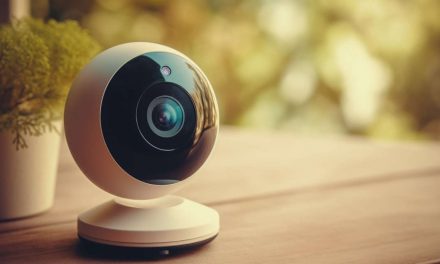By Steve Moran
Over the weekend Hanh Brown created a poll asking about the barriers to adoption of technology by older people. Here are the choices:
- Lack of access to technology
- Concerns about privacy and security
- Difficulty learning how to use new technology
- Cost
As I was reading the preamble and the poll itself, it occurred to me that the most important choice wasn’t listed, and that is that they …
Simply don’t want it — don’t see the need for it.
The Wrong Assumption?
There is this assumption by many of us, most of us, that having technology in our lives is better than not having technology in our lives — and fairly, when it comes to things like air travel and health care technology, which have vastly improved the life of everyone (or perhaps more accurately have extended the lifespan of everyone, since quality is much harder to gauge).
But does more technology really make the lives of older people better, or is this just an ageist notion? A few weeks ago, I spent a few nights at a senior living community, and every morning I would wake up to a daily newsletter at my door. When I was talking to leaders in the community, they noted that a significant portion of residents refused to use technology to get their daily news, requiring them to print and distribute a paper version every day.
But really, is it bad or backward to want to have a physical newsletter rather than an electronic one? Sure it makes more work for the staff, but likely that choice is made because it creates a better life experience for those individuals. It is simply a choice.
We Are Slaves — I Am a Slave 
I have loved technology from the time I was a kid. I remember my mom purchasing a calculator for my dad when they first came out.
I think she paid $395 for it in 1972 or 1973, which would be close to $3,000 today. And I was fascinated by it even though it could only add, subtract, and multiply.
Today I have a laptop, several tablets, an expensive smartphone, a Kindle, more cameras than I can count. And then all the apps, programs, and services — LinkedIn, Facebook, TikTok, my calendar, YouTube, television, Instagram, Community, Instant Messenger ….
And I am addicted to them all. I am 100% dependent on technology to make a living.
It Comes With a Price
This technology comes with a price. It distracts me from doing other things. It keeps me from spending as much time outdoors, which means I am neglecting my soul. Technology creates a weird kind of attention deficit disorder in all of us. Think I am wrong? How many times a day do you check for new text messages and emails?
Is It Possible …
Is it possible these older people who are “slow to adopt” technology are in reality simply making a rational choice for themselves and their life situation? Is it possible they have figured out that technology, or more technology, will make them less happy rather than more happy?
I think we need to be very careful in our assumptions about what will make other people happy, particularly those who are older.









I think the answer to this question is “it depends.” Does the technology meet an emotional need the user has? Does the user have real-world limitations that prevent them from enjoying daily life or activities? Are hearing aids bad for a person who is hard of hearing, or glasses bad for someone with vision problems? These are forms of technology.
As you say, if a need is unmet, then using technology to meet that need makes sense.
I don’t think the statement that using technology comes at some emotional or spiritual price. Does reading a book impact you negatively or talking on the telephone? Does using a microwave to heat food cost you spiritually or impact one’s happiness negatively?
I know many seniors well into their 80s who use technology like Virtual Reality, and they say it improves their life and happiness. Some would go so far as to say that the technology has “given them their life back.”
Yes, technology does improve life of the Seniors. It should be simple & user friendly. Many seniors prefer to age at their own homes. There’re ageing technologies that give privacy to the seniors, become their virtual companions & helps them to connect with care givers & loved ones.
Yes, technology does improve life of the Seniors. It should be simple & user friendly. Many seniors prefer to age at their own homes. There’re ageing technologies that give privacy to the seniors, become their virtual companions & helps them to connect with care givers & loved ones.